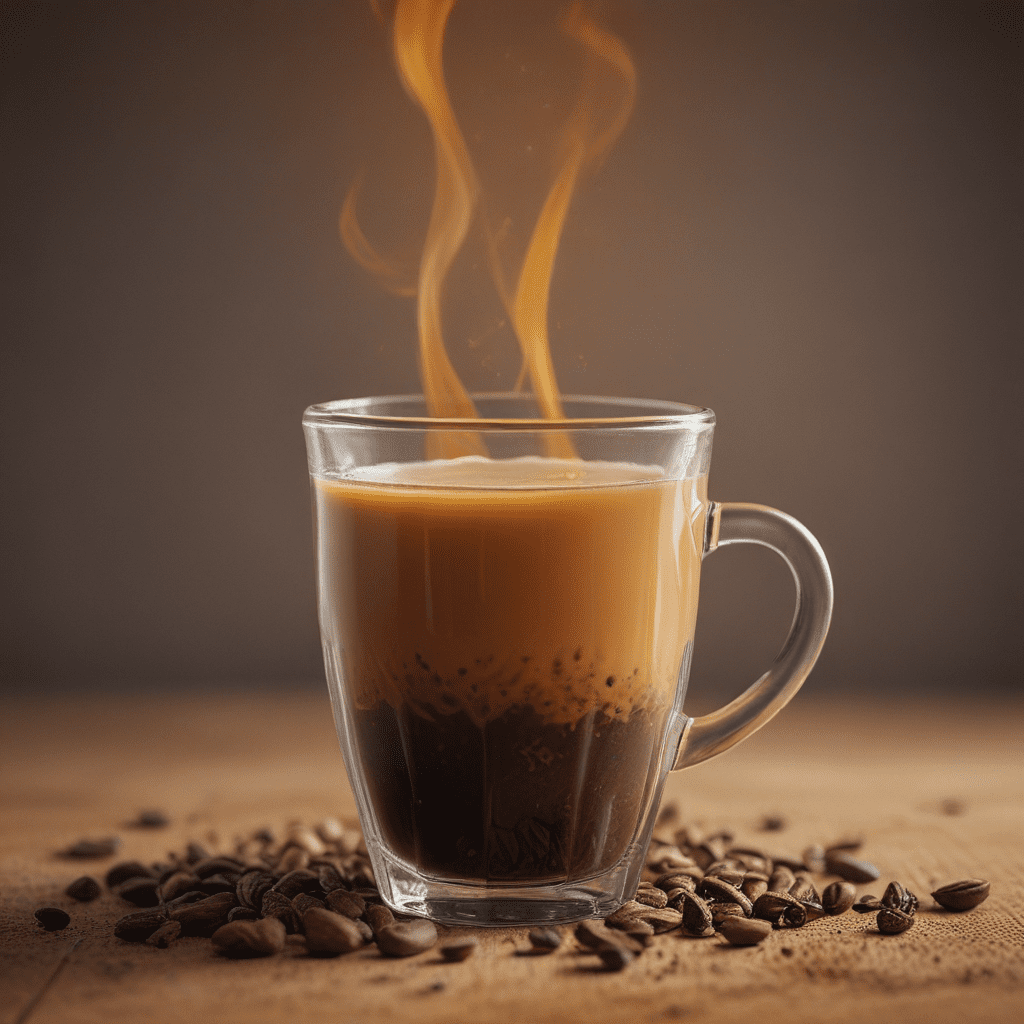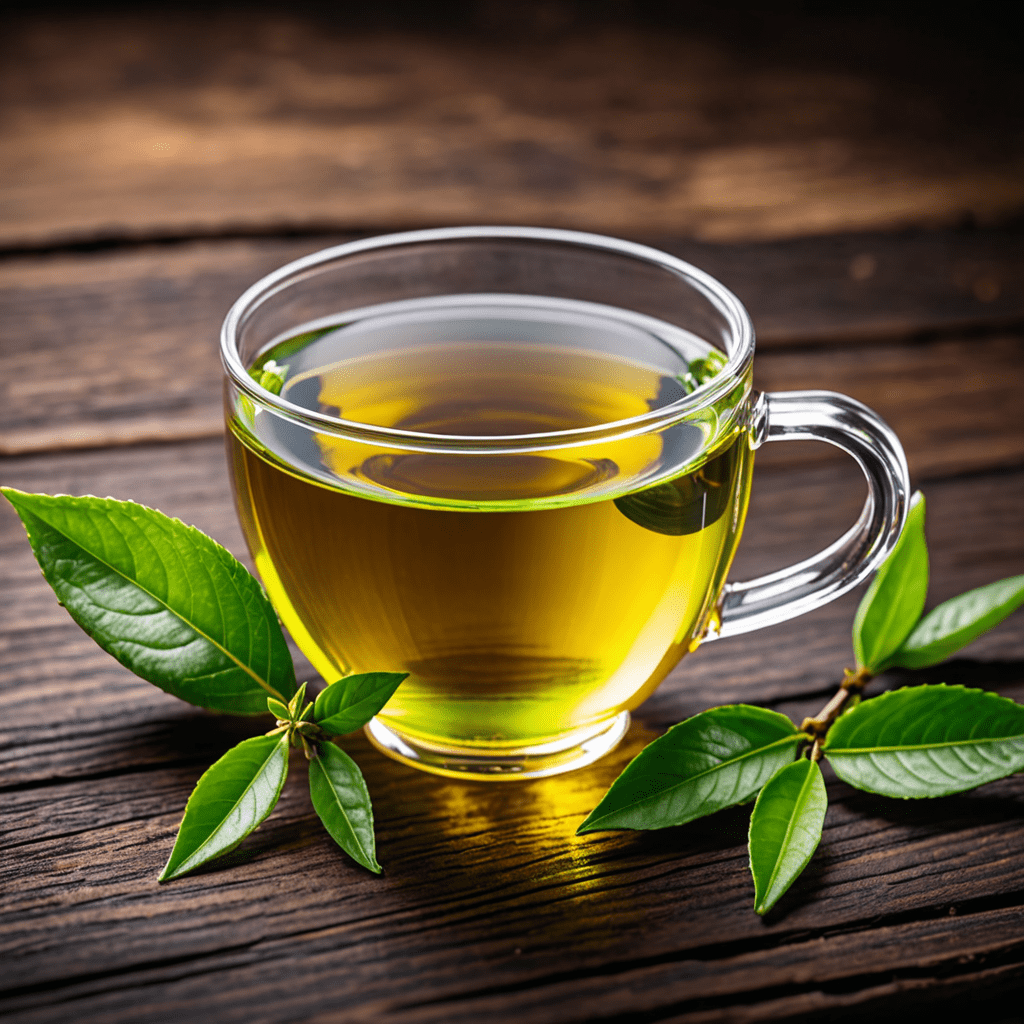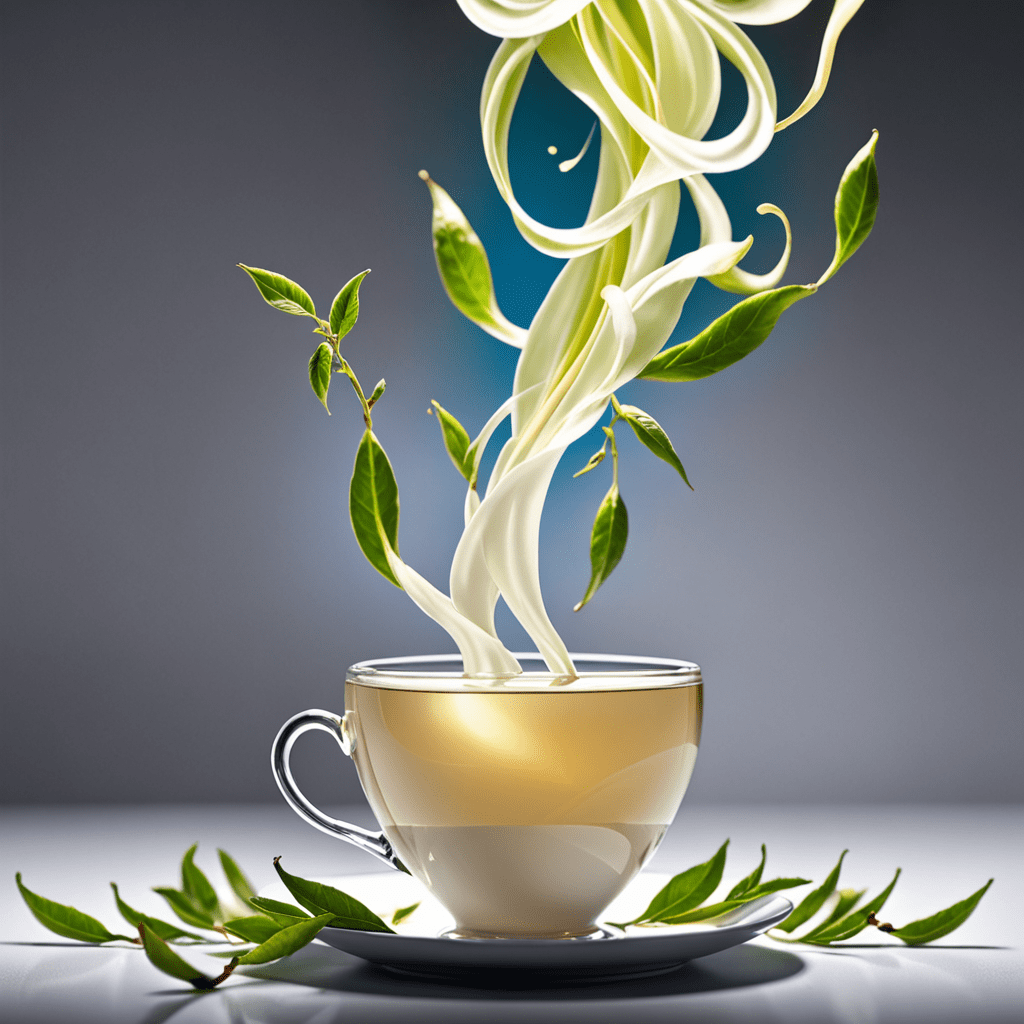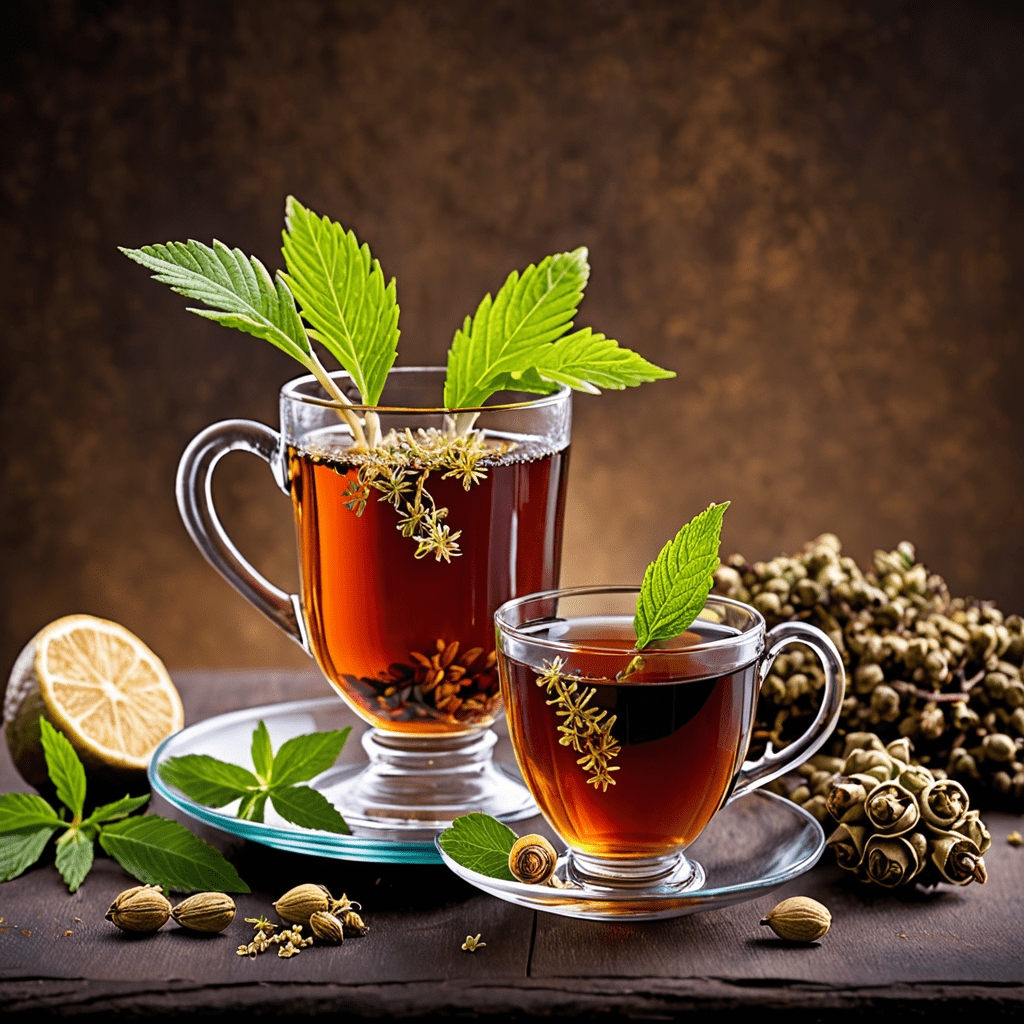
The History and Origin of Chai Tea
Chai tea, an aromatic beverage steeped in history and tradition, has its roots in the Indian subcontinent. Its exact origins are uncertain, but many believe it emerged as a healing concoction in Ayurvedic medicine, an ancient Indian system of holistic health. The term "chai" simply means "tea" in Hindi and various regional languages of India.
Over centuries, chai tea evolved into a beloved social beverage, enjoyed in homes and tea stalls across the country. It became an integral part of Indian culture, symbolizing warmth, hospitality, and community. The British colonists who arrived in India in the 17th century were introduced to chai and subsequently brought it back to their home country, where it gained popularity as a comforting and exotic drink.
Unique Blend of Spices: Exploring the Essence of Chai
The hallmark of chai tea lies in its distinctive blend of spices, which vary slightly depending on the region and personal preference. However, some common ingredients include:
Ginger: Known for its sharp, pungent flavor, ginger adds a warming and invigorating element to chai.
Cardamom: The "queen of spices," cardamom imparts a sweet, aromatic flavor with a hint of citrus.
Cinnamon: Cinnamon's warm, slightly spicy, and slightly sweet notes provide a cozy undertone.
Clove: Cloves add a subtle smoky and slightly bitter nuance to the blend.
Black Pepper: A dash of black pepper enhances the overall flavor profile and aids in digestion.
These spices are traditionally combined with black tea, creating a robust and flavorful infusion that is both energizing and soothing.
Health Benefits of Chai: A Tea with Medicinal Properties
Beyond its delightful taste, chai tea is also recognized for its potential health benefits. The spices used in chai have traditionally been employed in Ayurvedic medicine for various ailments:
Anti-inflammatory Properties: Ginger and turmeric, commonly found in chai, possess anti-inflammatory properties that may help reduce chronic inflammation.
Improved Digestion: Cardamom and cinnamon are known to aid digestion, easing gas, bloating, and other digestive issues.
Boosted Immunity: Cloves and black pepper contain antioxidants and antimicrobial compounds that may help strengthen the immune system.
Stress Relief: The calming effects of chai, attributed to the spices and the warmth of the beverage, may help reduce stress and anxiety.
While scientific research on the health benefits of chai is ongoing, anecdotal evidence suggests that this aromatic tea may offer numerous health-promoting properties.
Chai Rituals: Cultural Significance and Preparation Methods
Chai tea holds great cultural significance in India and other South Asian countries. It is often served as a welcoming gesture, a way to connect with friends and family, and during religious ceremonies. The preparation of chai can vary from region to region, but the traditional method involves:
Brewing the Tea: Black tea leaves are brewed in water until desired strength is achieved.
Adding Milk and Sugar: Milk, typically whole or condensed, is added to the tea, along with sugar to taste.
Simmering with Spices: The spice blend is added to the tea mixture and simmered for a few minutes, allowing the flavors to meld.
Straining and Serving: The chai is then strained through a traditional sieve known as a "chalni" and served hot in small cups.
Brewing the Perfect Cup of Chai: A Step-by-Step Guide
Brewing the perfect cup of chai tea at home is an accessible and rewarding experience. Here's a step-by-step guide to help you create this comforting and aromatic beverage:
6. Variations on a Classic: Different Chai Recipes from Around the World
Chai tea is not confined to one set recipe. In fact, numerous variations have emerged in different regions, each showcasing unique twists on the traditional blend. Here are a few popular variations:
Kashmiri Chai: This variant from the Kashmir region in northern India is known for its delicate pink hue. It incorporates saffron and almonds, lending it a rich, nutty flavor with a subtle floral aroma.
Maharaja Chai: As its name suggests, Maharaja Chai is fit for royalty. It is a luxurious blend that includes saffron, cardamom, ginger, clove, and cinnamon, creating an opulent and aromatic experience.
Thai Iced Chai: A refreshing twist on chai, Thai Iced Chai combines the warm spices of chai with the cooling properties of condensed milk and ice. The result is a delightful beverage that balances sweet and spicy flavors.
Dirty Chai: A modern take on chai, Dirty Chai adds a shot of espresso to the tea mixture. This combination creates a bold and invigorating beverage that appeals to coffee lovers who enjoy the comforting warmth of chai.
Turmeric Chai: This variation incorporates turmeric, known for its vibrant yellow color and anti-inflammatory properties. It adds a subtly earthy and slightly bitter note to the blend, creating a Chai that is both flavorful and potentially beneficial for health.
7. Pairing Chai with Food: A Culinary Journey
Chai tea pairs beautifully with various culinary delights. Its aromatic spices complement both sweet and savory dishes, making it a versatile accompaniment to meals. Here are a few suggested pairings:
Biscuits and Pastries: Chai's warmth and sweetness pair perfectly with freshly baked biscuits or pastries. The spices in the tea enhance the flavors of flaky croissants, scones, or gingerbread cookies.
Indian Delicacies: Chai is an indispensable companion to many Indian dishes. Serve it alongside spicy curries, savory samosas, or aromatic biryanis to create a harmonious culinary experience.
Desserts: Chai's delicate sweetness complements desserts, especially those with chocolate or nutty flavors. It pairs well with chocolate cake, tiramisu, or nutty pies, offering a delightful balance of flavors.
8. The Art of Making Masala Chai: Master the Signature Blend
Masala Chai, meaning "spiced tea," is the most popular variation of chai tea in India and beyond. It is distinguished by its robust blend of spices and typically includes a sweetener. Here's how to make your own authentic Masala Chai:
Ingredients:
- 1 liter (4 cups) water
- 4-5 tablespoons loose black tea leaves
- 1 tablespoon ground ginger
- 1 tablespoon ground cardamom
- 1/2 tablespoon ground cinnamon
- 1/4 tablespoon ground clove
- 1/4 teaspoon ground black pepper
- 1 cup milk (whole or non-fat)
- Sugar or honey to taste (optional)
Instructions:
- In a large pot, bring the water to a boil.
- Add the tea leaves and bring back to a boil.
- Reduce heat, add the spices, and simmer for 10 minutes.
- Add the milk and bring to a gentle boil.
- Remove from heat, strain into a serving pot, and sweeten to taste (if desired).
- Serve hot and enjoy the aromatic essence of Masala Chai.
9. Chai Tea as a Comfort Beverage: Soothing Aromas and Warmth
Chai tea transcends mere hydration; it embodies comfort and warmth. Its aromatic spices evoke a sense of well-being, while the warmth of the beverage soothes and relaxes. Whether enjoyed on a chilly evening or during moments of tranquility, chai tea creates a comforting ambiance that nurtures both mind and body.
10. Conclusion: The Enduring Allure of Chai, a Timeless Elixir
Chai tea has captured the hearts and taste buds of countless individuals worldwide. Its origins rooted in the ancient traditions of Ayurvedic medicine, chai has evolved into a beloved beverage cherished for its health-promoting properties, cultural significance, and comforting aroma. From traditional preparations to modern variations, the enduring allure of chai lies in its ability to warm the soul, invigorate the senses, and promote a sense of well-being. As an aromatic delight and a timeless elixir, chai tea continues to conquer hearts and palates, establishing its place as a staple in the realm of beverages.
FAQ: Frequently Asked Questions about Chai Tea
Q: What is the caffeine content in chai tea?
A: The caffeine content in chai tea varies depending on the type and amount of black tea used. Generally, an 8-ounce cup of chai tea contains around 40-60 mg of caffeine.
Q: Can chai tea be made without caffeine?
A: Yes, it is possible to make chai tea without caffeine by using decaffeinated black tea leaves or a caffeine-free herbal tea blend.
Q: Is chai tea good for weight loss?
A: While chai tea has some ingredients that may aid digestion and metabolism, it is not specifically recommended for weight loss. The presence of milk and sugar in traditional chai recipes may add additional calories.
Q: How long does chai tea stay fresh?
A: Brewed chai tea can be stored in the refrigerator for up to 3 days. However, it is recommended to consume it within 24 hours for the best flavor and aroma.
Q: Can chai tea be made with plant-based milk?
A: Yes, chai tea can be made with various plant-based milk alternatives such as almond milk, oat milk, or soy milk.


